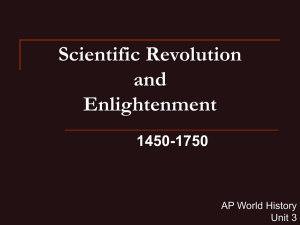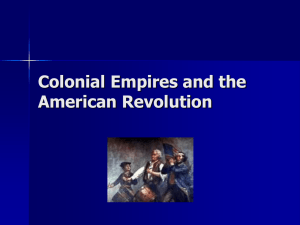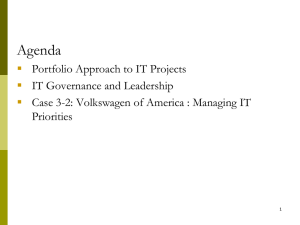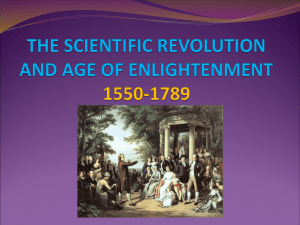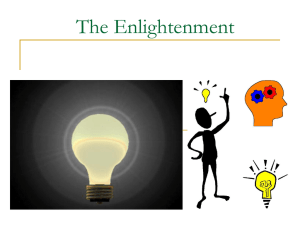Final Exam Question 6 Response
advertisement
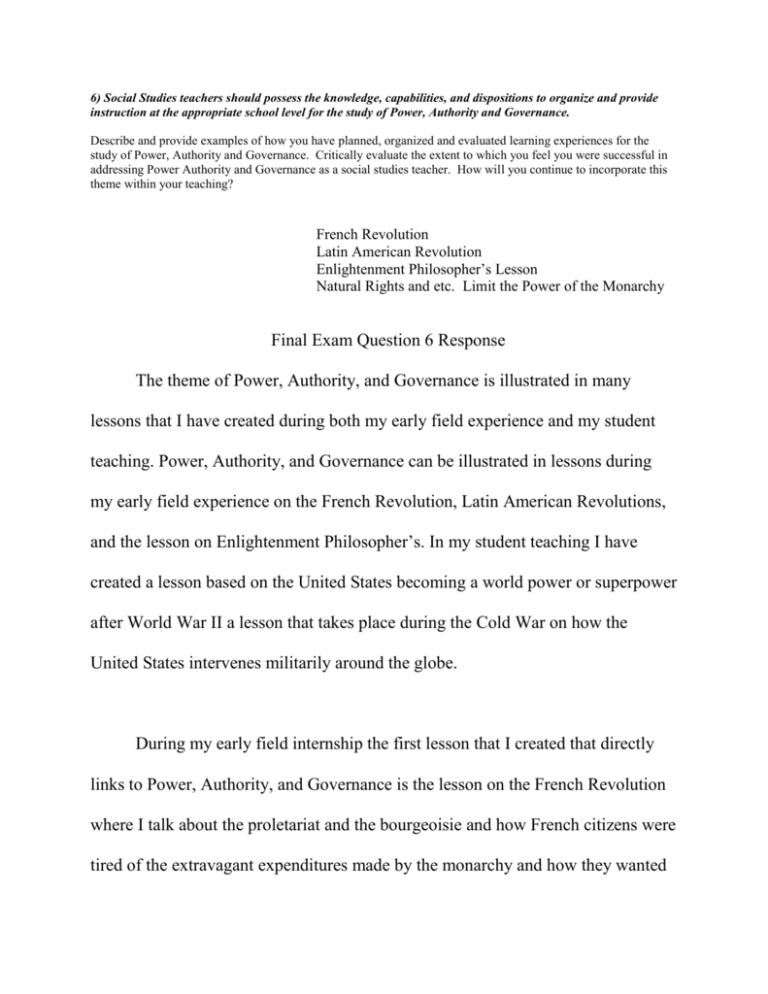
6) Social Studies teachers should possess the knowledge, capabilities, and dispositions to organize and provide instruction at the appropriate school level for the study of Power, Authority and Governance. Describe and provide examples of how you have planned, organized and evaluated learning experiences for the study of Power, Authority and Governance. Critically evaluate the extent to which you feel you were successful in addressing Power Authority and Governance as a social studies teacher. How will you continue to incorporate this theme within your teaching? French Revolution Latin American Revolution Enlightenment Philosopher’s Lesson Natural Rights and etc. Limit the Power of the Monarchy Final Exam Question 6 Response The theme of Power, Authority, and Governance is illustrated in many lessons that I have created during both my early field experience and my student teaching. Power, Authority, and Governance can be illustrated in lessons during my early field experience on the French Revolution, Latin American Revolutions, and the lesson on Enlightenment Philosopher’s. In my student teaching I have created a lesson based on the United States becoming a world power or superpower after World War II a lesson that takes place during the Cold War on how the United States intervenes militarily around the globe. During my early field internship the first lesson that I created that directly links to Power, Authority, and Governance is the lesson on the French Revolution where I talk about the proletariat and the bourgeoisie and how French citizens were tired of the extravagant expenditures made by the monarchy and how they wanted to place limits on monarchy. The second lesson that relates to the French Revolution is the lesson on Latin American Revolutions and the American Revolution. These two lessons also reflected the notion of Power, Authority, and Governance. In these lessons I had students pick out the important historical figures and explain to me what they believed in regarding Power, Authority, and Governance. I had students tell me who the revolutionary was, who they fought for, and why they were considered revolutionary. I also had primary source quotes from Simon Bolivar and Father Hidalgo and various other Latin American and American Revolutionaries. I then had students analyze and evaluate the quotes and tell me who said what, why, and in what context. I also created a lesson on Enlightenment Philosopher’s where I had students compare and contrast their philosophical ideas on Power, Authority, and Governance. I also had students analyze primary source excerpts from the Enlightenment philosophers so that they could explain to me who, what, when, where, and why the Enlightenment philosophers wrote the quote. During my student teaching I created a lesson plan on the United States becoming a world power or superpower after World War II in relation to military interventions to stop the spread of Communism during the Cold War. I talked in depth about the transformation and change of the United States from being a country that was isolated from direct conflicts and then becoming involved in major conflicts. I also talked about the idea that the United States primary purpose of being a superpower is to protect and spread democracy in other countries while the Soviet Union wanted to protect and spread communism to other countries. I had students during the lesson label on a map the locations where the US tried to intervene or prevent the spread of communism. I also had them label a map of the world and I had them label the countries either communist or democratic. All of these lessons I started out when planning them with a big question or objective I wanted students to understand. With this theme I aimed for students to understand the intricate relationship between a government and its people, a government of country with other countries, and etc. When I organize a lesson especially a lesson that deals with more than one country I like to include a map or some sort of visualization so that students can see the overall impact that the one country has had around the world. I also like to include as many primary sources as possible especially when an individual writes something about Power, Authority, or Governance like in the case of the Enlightenment philosophers. All of these lessons turned out fairly well. Especially the lesson on the Enlightenment philosophers and the Cold War ideologies. Students really liked the idea of being able to connect a philosopher with their ideas and works. Students in during the Cold War ideologies lesson liked the fact that they could visually see the impact or influence that the Soviet Union and the US had on various countries at the beginning of the Cold War. Students also found the idea that the US has intervened in other countries since World War II to protect and promote democracy to be interesting they liked the accompanying map that showed the locations of various countries that the US intervened in during the Cold War. The theme Power, Governance, and Authority can be illustrated in future lessons by using various social study skill building strategies such as mapping, interpreting primary sources, and etc.

